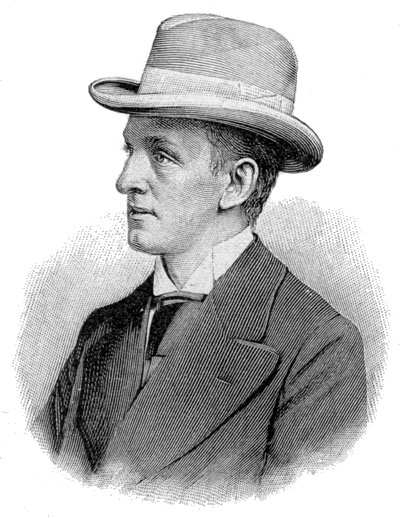- Gerhart Hauptmann
Infobox Writer
name = Gerhart Hauptmann
awards = awd|Nobel Prize in Literature |1912

birthdate = birth date|1862|11|15|mf=y
birthplace = Obersalzbrunn, thenGermany , nowPoland
deathdate = death date and age|1946|6|6|1862|11|15|mf=y
deathplace = Agnetendorf,Poland
occupation = dramatist
nationality = German
movement = Naturalism
notableworks = "The Weavers", "Die Ratten"Gerhart Hauptmann (
November 15 ,1862 —June 6 ,1946 ) was a Germandramatist who received theNobel Prize in Literature in 1912.Hauptmann's career as a playwright
Hauptmann was born in
Obersalzbrunn , a small city ofSilesia , now known asSzczawno-Zdrój and a part ofPoland .He was the son of a hotel-keeper. From the village school of his native place he passed to the "Realschule" in Breslau, and was then sent to learn agriculture on his uncle's farm at Jauer. Having, however, no taste for country life, he soon returned to Breslau and entered the art school, intending to become a sculptor. Here he met his life-long friend
Josef Block . He then studied at Jena, and spent the greater part of the years 1883 and 1884 in Italy. In May 1885 Hauptmann married and settled inBerlin , and, devoting himself entirely to literary work, soon attained a great reputation as one of the chief representatives of the modern drama.In 1891 he moved to Schreiberhau in Silesia. Hauptmann's first drama, "Vor Sonnenaufgang" (1889) inaugurated the naturalistic movement in modern German literature. It was followed by "Das Friedensfest" (1890), "Einsame Menschen" (1891) and "Die Weber" ("The Weavers" 1892), a powerful drama depicting the rising of the Silesian weavers in 1844. Of Hauptmann's subsequent work, mention may be made of the comedies "Kollege Crampton" (1892), "
Der Biberpelz " (1893) and "Der rote Hahn" (1901), a "dream poem," "Hannele" (1893), and an historical drama "Florian Geyer" (1895). He also wrote two tragedies of Silesian peasant life, "Fuhrmann Henschel" (1898) and "Rose Bernd" (1903), and the dramatic fairy-tales "Die versunkene Glocke" (1897) and "Und Pippa tanzt" (1905).Hauptmann's marital life was difficult, and in 1904 he divorced his wife. That same year he married the actress Margarete Marschalk, who had borne him a son four years previously. The next year, his second marriage was interrupted by an affair with the 17-year-old Austrian actress
Ida Orloff , whom he met in Berlin when she performed in his play "Hanneles Himmelfahrt". Orlov inspired characters in several of Hauptmann's works, and he later referred to her as his muse.In 1911 he wrote "Die Ratten". In 1912, Hauptmann was awarded the
Nobel Prize in Literature in 1912 "primarily in recognition of his fruitful, varied and outstanding production in the realm of dramatic art."During the
First World War Hauptmann was a Pacifist. In this period of his career he wrote several gloomy and historical-allegorical plays, like "Der Bogen des Odysseus" (1914), "Der weisse Heiland" (1912–17), "Winterballade" (1917). After the War his ability was clearly on the wane. There are two full-length plays which are similar to the early successes, but with a little Realistic taste: "Dorothea Angermann" (1926) and "Vor Sonnenuntergang" (1932). He remained inGermany afterHitler 's "Machtergreifung" and survived the fire storm of Dresden. His last bow is the "Atriden-Tetralogie" (1942–46).Several of his works have been translated into English. (All the plays which he wrote till "Veland" (1925), except "Elga", an earlier fairy play and "Festspiel in deutschem Reimen", a festival play.)His works were published by
S. Fischer Verlag .Hauptmann died at the age of 83 at his home in Agnetendorf (now
Jagniątków , Poland) in 1946. As the Polish administration did not allow Hauptmann's relatives to bury him in Agnetendorf although even the Russian military government recommended it as they admired the work of Hauptmann, his body was transported in an old cattle wagon to Germany more than a month after his death. He was buried near his cottage onHiddensee .Other works
* Plays: "Elga" (1896), "Michael Kramer" (1900), "Schluck und Jau" (1900), "Der arme Heinrich" (1902), "Gabriel Schillings Flucht" (1906), "Die Jungfern von Bischofsberg" (1907), "Kaiser Karls Geisel" (1908), "Griselda" (1909), "Peter Brauer" (1912), "Festspiel in deutschen Reimen" (1913), "Magnus Garbe" (1914, second version: 1942), "Indipohdi" (1920), "Veland" (1925), "Herbert Engelmann" (1921–26), "Spuk" (two plays: "Die schwarze Maske" and "Hexenritt", 1928), "Die goldene Harfe" (1933), "Hamlet im Wittenberg" (1935), "Die Finsternisse" (1937), "Ulrich von Lichtenstein" (1936–37), "Die Tochter der Kathedrale" (1935–38).
* Novels: "Der Narr in Christo Emanuel Quint" (1910), "Atlantis" (1912), "Phantom" (1923), "Wanda, der Dämon" (1926), "Die Insel der grossen Mutter" (1928), "Um Volk und Geist" (1932), "Im Wirbel der Berufung" (1936), "Der Abenteuer meiner Jugend" (1937) etc. etc.
* Short novels: "Bahnwärter Thiel " (1888), "Die Ketzer von Soana" (1924), "Marginalien" (selected works, reports: 1887–1927), "Sonnen" (1938), "Der Schuss im Park" (1939)
* Verse novels: "romethidenlos" (1885), "Anna" (1921), "Die blaue Blume" (1924), "Till Eulenspiegel" (1927), "Das Meerwunder" (1934), "Der grosse Traum" (1912–42) etc. etc.ources
External links
* [http://nobelprize.org/nobel_prizes/literature/laureates/1912/hauptmann-autobio.html The Nobel Prize Bio on Hauptmann]
*
* [http://www.kirjasto.sci.fi/hauptman.htm Authors' Calendar]----
*Persondata
NAME=Hauptmann, Gerhart Hauptmann
ALTERNATIVE NAMES=
SHORT DESCRIPTION=Germandramatist who received theNobel Prize in Literature in 1912
DATE OF BIRTH=November 15 ,1862
PLACE OF BIRTH= Obersalzbrunn,Poland
DATE OF DEATH=June 6 ,1946
PLACE OF DEATH= Agnetendorf,Poland
Wikimedia Foundation. 2010.
